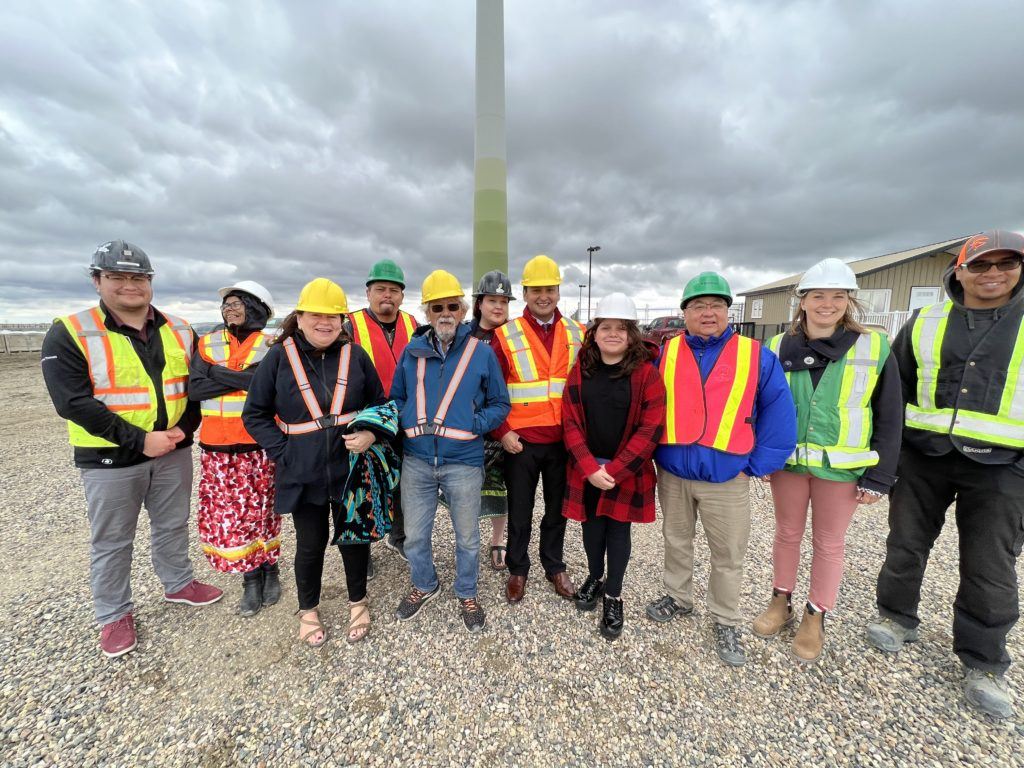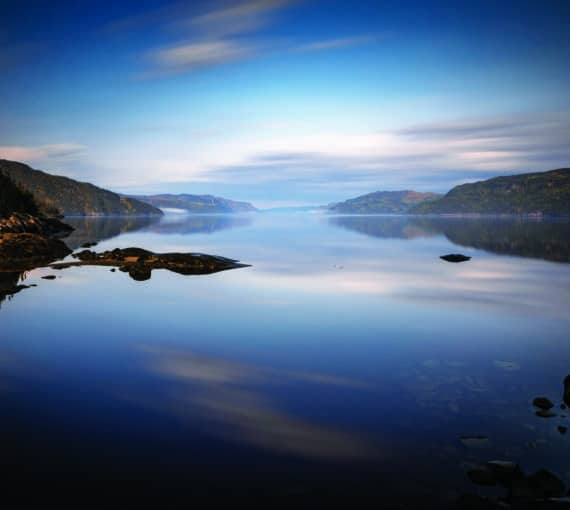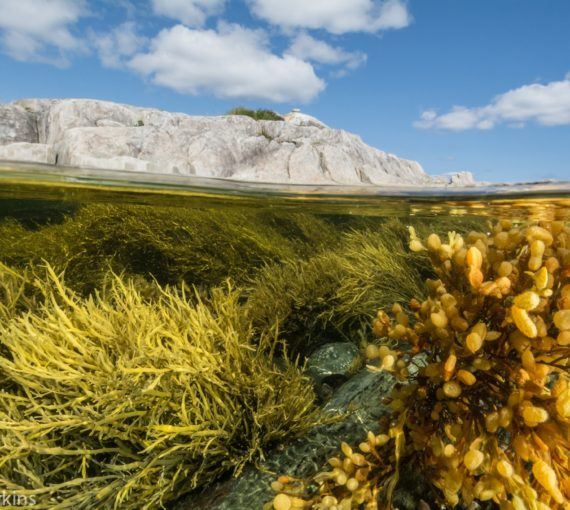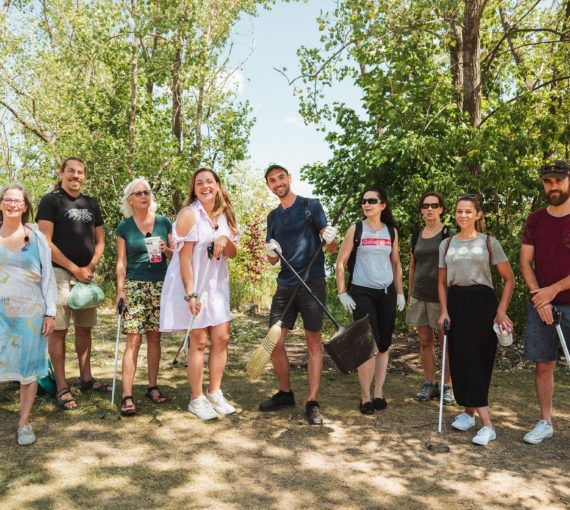
Our co-founders, David Suzuki and Tara Cullis, promoted clean power and visited cutting edge Indigenous-led renewable energy projects during their EV drive from Vancouver to Toronto last June. (Photo: Ian Mauro)
The climate and biodiversity crises can be discouraging and demoralizing.
But there are good reasons to have hope — necessary fuel to confront these challenges.
Here are four victories you can celebrate:
A clear path to clean power
Our research — the first of its kind in Canada — points the way to achieving 100 per zero-emissions (NOT just net zero) electricity in this country by 2035.
Released in May, “Shifting Power: Zero-Emissions Electricity Across Canada by 2035” models how Canada can quickly and affordably shift to reliable emissions-free electricity:
- Using only renewable sources like solar and wind, connections between provincial utilities, energy efficiency and innovations in storage and transmission.
- Taking existing fossil fuel projects off the grid and not rebuilding nuclear plants when they’re retired.
- Avoiding new large hydroelectricity projects and carbon capture and storage technologies.
- Adding more than 75,000 new jobs in new power construction, operation and maintenance every year between 2025 and 2050.
- Saving more than three billion tonnes of carbon emissions.
On top of all that, with their abundance of sun and wind, Canada’s Prairie provinces — especially southern Saskatchewan and southeast Alberta — could soon be clean energy superpowers.
As more electric vehicles and other electrified climate solutions come on board, moving from fossil fuel–powered electricity to clean sources is critical.
Equally essential: decolonizing power sources and respecting Indigenous rights. As our companion report, “Decarbonizing Electricity and Decolonizing Power: Voices, Insights and Priorities from Indigenous Clean Energy Leaders” notes, all existing and future energy projects in Canada are on either unceded Indigenous territories or treaty lands.
Both reports are the latest from the three-year Clean Power Pathways project.
Our co-founders, David Suzuki and Tara Cullis, promoted clean power and visited cutting edge Indigenous-led renewable energy projects during their EV drive from Vancouver to Toronto last June.
We continue to speak to governments on what a zero-emissions electricity transition could look like and hold Canada accountable to a stringent clean electricity standard.
Pathways like this would be a massive undertaking as well as an opportunity. Done right, they can offer cleaner air, better health, good jobs and a safer future.
Stephen Thomas, David Suzuki Foundation
Sixteen new green spaces dedicated to reconciliation
This summer, we partnered with the National Healing Forest Initiative to grow their network by providing financial support to 16 communities for new Healing Forests.
Healing Forests are green spaces dedicated to the first inhabitants of the land and their descendants. They combine reconciliation and healing into one immersive experience.
They’re places for learning, sharing and reflecting on Canada’s history and the legacy of residential schools. Unique to each community — what they look like isn’t prescribed — they can be urban or rural, big or small, an actual forest or a dedicated green space.
They honour residential school victims, survivors and their families; murdered and missing Indigenous women and girls and two-spirit people; and children who have been taken from their families who often ended up in the welfare system.
They also help people connect with nature and each other, promoting health, healing and community.
Saulteaux Cree non-practising lawyer Patricia Stirbys and geologist and international development consultant Peter Croal founded the National Healing Forest Initiative following the Truth and Reconciliation Commission’s final report in 2015.
Awards were announced Friday, September 30, 2022 — Canada’s National Day for Truth and Reconciliation, also observed as Orange Shirt Day. Winners are located all over the map.
By establishing a Healing Forest, anyone can take that first step to bring people together, help them reflect on this country’s tragic past and connect with nature and each other.
Patricia Stirbys, Co-founder, National Healing Forest Initiative
Canada’s first virtual climate lab
How can we decarbonize society and the economy while benefiting those directly affected by climate change? How can we ensure climate legislation considers equity and social justice? How can we make science accessible to all?
Our new virtual Climate Conscience Lab aims to explore those questions and more by:
- Breaking down divides between climate literacy and activism
- Humanizing the climate sciences
- Advocating for climate justice
- Spurring collective, creative and community-based climate action
- Leveraging the power of art to raise awareness
Current projects include urban forestation and equity research, investigations into legal innovation for planetary health and a book of environmental justice stories.
To celebrate the Lab launch, we partnered with Pop Montreal for a live climate justice art activism poster exhibit people could visit from April 22 (Earth Day) to May 6, 2022. It featured works by 16 Indigenous and non-Indigenous artist-activists and live performances by the Kahnawà:ke Youth Collective, actor Nadia George, Inuk artist Beatrice Deer, and trilingual (French, English, Creole) beatmaker and guitarist Waahli.
Justice and systemic discrimination are often marginalized in crafting climate and environmental policy. The lab’s focus on spurring collective, creative and community-based action to tackle climate change will leave no one behind.
Sabaa Khan, director, Climate Conscience Lab, David Suzuki Foundation
Making waves in the seafood supply chain
Sustainable seafood doesn’t compromise fish populations, the environment or human rights. And people in Canada want to know how what they buy was raised and/or caught and where it actually comes from.
We’ve partnered with SeaChoice — dedicated to ensuring seafood sustainability throughout the supply chain — since it began in 2006.
SeaChoice launched Seafood Progress in 2018. The platform assesses eight major grocery store chains (where most people buy seafood) against 23 performance indicators, lets people compare 13 popular brands and makes it easy for consumers to tell all of them to do better.
It’s making a difference. Following SeaChoice’s guidance, suppliers reported these first-time milestones:
- Six brands clearly committed to sustainability, referencing credible standards and publicizing them on their websites.
- Nearly half the brands reported the percentage of seafood they sell that meets their sustainability commitments.
- Retail giant Costco’s overall score increased by nearly 50 per cent.
But many stores and brands have yet to rise to the challenge. You can help.
Use Seafood Progress’s platform to see how your favourite grocers and brands are doing. Then vote with your wallet the next time you shop.
Grocery stores are where most Canadians buy their seafood. Therefore, grocers have a significant responsibility to their customers to ensure all the seafood they sell — not just some — is sourced in an environmentally and socially responsible way.
Dana Cleaveley, supply chain analyst, SeaChoice
Finding Solutions features stories of caring people like you who make everything here possible. You can read, share, discuss, take action, join, donate. Whatever you choose, you’re helping protect Earth’s life-support systems. Thank you.


